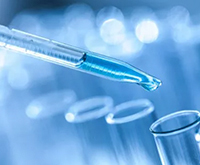What is Squamous Cell Carcinoma Antigen?
(2023年01月22日)https://www.sekbio.com/products/triiodothyronine-t3-antibody/
With the accelerated pace of modern life, more and more people feel that their bodies are getting worse every day, even young people have this idea. Do you know what squamous cell carcinoma antigen is? Let's take a look at the introduction together.
Ⅰ. Introduction of squamous cell carcinoma antigen (SCC)
Squamous cell carcinoma antigen (SCC) is a tumor marker with good specificity and the earliest used to diagnose squamous cell carcinoma. It was originally isolated from cervical cancer tissue and belongs to the serine protease inhibitor family in terms of biological activity, and it includes two genes SCC1 and SCC2. SCC inhibits apoptosis and participates in the differentiation of the squamous epithelial layer in normal squamous epithelial cells, participates in tumor growth in tumor cells, and contributes to the diagnosis and monitoring of all squamous cell-derived cancers.
Ⅱ. Clinical application of squamous cell carcinoma antigen (SCC)
SCC is mainly used in the diagnosis of squamous cell carcinoma, including squamous cell carcinoma of the cervix, head and neck, esophagus, lung and trachea, genitourinary tract, and anal canal, as well as prognosis, disease monitoring, and efficacy evaluation.
1. It has a high diagnostic value for cervical cancer: the sensitivity of primary cervical squamous cell carcinoma is 44%-69%; the sensitivity of recurrent cancer is 67%-100%, and the specificity is 90%-96%; the determination of serum SCC has an important prognostic role, and the level of serum SCC in patients before treatment is the best independent predictive marker other than lymph node status.
The SCC concentration decreases significantly after radical resection of cervical cancer; it can prompt recurrence early, and 50% of patients have an increase in SCC concentration 2-5 months before clinical diagnosis of recurrence, and it can be used as an independent risk factor. SCC detection is a good method for monitoring disease recurrence in patients with cervical cancer after radiotherapy and chemotherapy.
2. Auxiliary diagnosis of skin cancer: The serum SCCA level will increase in patients with skin squamous cell carcinoma, especially in the advanced stage. For some primary skin squamous cell carcinoma, the clinical severity is related to the serum SCCA level. It can be used as an early warning indicator of skin cancer recurrence risk.
3. Auxiliary diagnosis of head and neck tumors: Serum SCCA levels in patients with head and neck tumors are elevated, and their levels are related to disease stages. Serum SCC level before treatment has prognostic significance for patients with locoregional tumors. SCCA is a good marker for monitoring residual lesions after the first treatment and can guide other adjuvant treatments.
4. Lung cancer: The prevalence of tracheal tumors is low, and the diagnostic accuracy is not high. The currently available markers are not suitable for screening asymptomatic people. Tumor markers must be compared with standard clinical methods (eg, imaging, cytopathology) at the time of diagnosis, combined with CEA for lung adenocarcinoma, combined with NSE for small cell lung cancer, and combined with CYFRA211 to improve the sensitivity of lung squamous cell carcinoma.
5. Prediction of esophageal squamous cell carcinoma: the positive rate increases with the development of the disease, and the combination of SCC and CYFRA21-1 can improve the detection sensitivity.
6.Diagnosis and monitoring of other squamous cell carcinomas: vulvar cancer, bladder cancer, anal canal cancer, penile metastatic squamous cell carcinoma, laryngeal squamous cell carcinoma, etc.
We can offer great triiodothyronine t3 for clents, if you have needs, please contact us.
If you want to know more details of thyroid function, please visit our website.
- このできごとのURL:


コメント